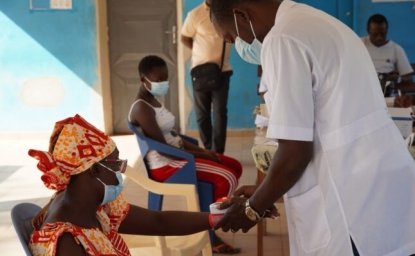The survey published by El Financiero last Wednesday showed that two-thirds of Mexicans interviewed would agree to accept more restrictive measures of confinement in the face of threats from the coronavirus, but most would disagree with the measures extending to restricting the freedom of expression or opinion. Confinement is accepted, censorship is not.
Some readers asked me if there was a relationship between these attitudes in the survey with aspects such as political orientation or educational level. The quick answer is yes, there are some differences, but they are not as defined as some would expect. The truth is that the typical variables of political orientation and socioeconomic status are placed in the background by another more influential variable at the moment: the perception of threat.
This "finding" is neither unexpected nor accidental but reflects academic literature on the subject, which establishes that, in times of crisis or war, the perception of threat makes citizens more likely to temporarily give up their rights and civil liberties before the State, than in circumstances of greater normality.
This debate is being mobilized in the United States, where the typical anti-tyranny political slogan, 'Give me liberty or give me death,' has taken a very evident epidemiological turn. Precisely to avoid the second, the deaths, is why the governments of the world have implemented a policy of confinement that reduces contagions, mortality, and, as we have heard over and over again, the collapse of health systems, which implies the restriction of some freedoms to people.
In Mexico, confinement has not been entirely obligatory, but the El Financiero survey showed that, if there were greater mandatory measures, most Mexicans would agree to them.
The survey also shows that acceptance of the confinement and surrender of certain freedoms and rights does increase as the perception of threat increases. Take, for example, concern about the coronavirus as an indicator of how threatening it is perceived: for those who are very concerned about the epidemic, which is the majority (66 percent), 85 percent support the extension of the quarantine, a measure with only 47 and 40 percent among the "least worried" segments. The difference in opinion is 45 points between the extremes. As a reference, there is a 21 point difference between Morena supporters and opponents, both mostly in favor, so without an underlying political conflict, and a difference of 12 points between low and high levels of education.
On the other hand, the segment that is highly concerned about the virus is 73 percent in agreement with strictly prohibiting people from leaving their homes, while the agreement drops to 54 percent among those who are somewhat concerned, and to 27 percent among a little or not worried about the virus. The difference is almost 50 points, while the educational level registers differences of one digit, and the Morena-opposition political poles barely demonstrate 13 points, with both antagonistic groups mainly in favor.
In sum, the greater the perception of threat, the greater the willingness to accept the restriction of rights and freedoms.
This includes freedom of expression: those very concerned about the virus would support restrictions on freedom of expression to prevent the spread of false news by 54 percent, while those less concerned agree in minority proportions, between 26 and 20 percent. The difference is 34 points. Partisanship shows a 10 point difference, with the opposition less willing to yield their freedom of opinion than Morena supporters.
It is, therefore, neither political orientation nor educational differences that mark the current polarization in the midst of the pandemic, but the perception of threat. This indicator best explains the acceptance or resistance to the measures of confinement and social restriction.
For the government to be convincing, it does not matter so much if you are a PAN or a Morena supporter, but rather how threatening you perceive the epidemic.
This article was originally published in El Financiero.
Author

Professor of Political Science, Instituto Tecnológico Autónomo de México (ITAM); Director of Public Opinion Polling, El Financiero

Mexico Institute
The Mexico Institute seeks to improve understanding, communication, and cooperation between Mexico and the United States by promoting original research, encouraging public discussion, and proposing policy options for enhancing the bilateral relationship. A binational Advisory Board, chaired by Luis Téllez and Earl Anthony Wayne, oversees the work of the Mexico Institute. Read more

Explore More
Browse Insights & Analysis
Russia’s Security Approach to Public Health

WIPO is AWOL


